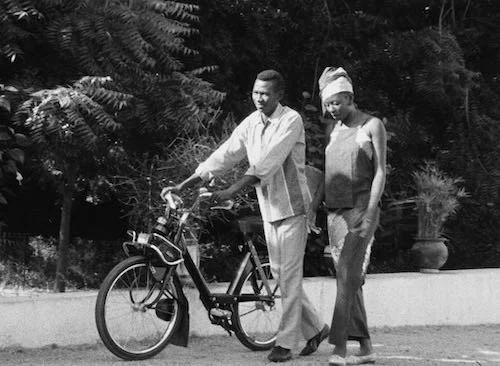The World of Movies: Cabascabo
Written by Rachael Crawley
The World of Movies is a series that explores global cinema, drawing on films from many countries, industries and eras. This week, we take a look at a soldier’s life.
Cabascabo.
May contain spoilers.
Cabascabo (1968) was the first film from Oumarou Ganda, one of Niger’s top directors in a critical age for its cinema. Newly independent from France, the country’s film scene blossomed in the 1960s and was highly regarded at home and abroad. Based on Ganda’s own military experience in then-French Indochina, Cabascabo marked the start of his influential film career – one that has effects in African cinema to this day.
In an ordinary neighbourhood, a group of veterans share stories and arguments about the conflicts they have seen. Cabascabo (played by Ganda) recalls his experience in Southeast Asia through flashback, while his friends listen somewhat incredulously. Between scenes of battle, he and his fellow soldiers share drinks and long discussions. Most of all, though Cabascabo is able to bear the situation, he dreams of returning home, preferably having earned some money first.
Newly returned to his hometown, Cabascabo is greeted enthusiastically by friends and family. However, it is not an exact fit – his war experiences have left him a different person, and he struggles to fit in again. Some friends and acquaintances befriend him for his newfound money. He begins a tentative relationship with Hawa (Zalika Souley). With some bumpy transitions and a few adjustments, he begins to resume his life.
Cabascabo.
The war scenes here are very well-done – realistic and visceral, showing both the constant tension of the war, and the soldiers at a personal level. So too are the scenes in the neighbourhood, which give a documentary-esque glimpse at everyday life in the community Cabascabo is trying to rejoin. The handheld camera work gives a sense of vitality to both scenes of war and intense conversations. The performances are strong across the board, though of course Ganda is given the most to work with (which he lives up to, splendidly). It could not be called tightly paced. This suits the mood of the story, though, as it creates a laid-back tone that fits Ganda’s “slice of life” style.
As you can imagine, there is a lot to unpack in this forty-five minute film. Both personal questions of identity, and larger ideas surrounding the impact of colonialism, are central to Cabascabo’s story. In both his performance and direction, Ganda is able to bring forward both of these sides, and weave them together into one compelling narrative. Navigating change, as a society and as an individual, can be a complicated topic. Cabascabo handles it with grace.
Rachael Crawley holds a Master's Degree in Film and Photography Preservation and Collections Management from Ryerson University, and has worked with film in Canada and in Europe. She adores language and cinema, and how these subjects interact with each other.




